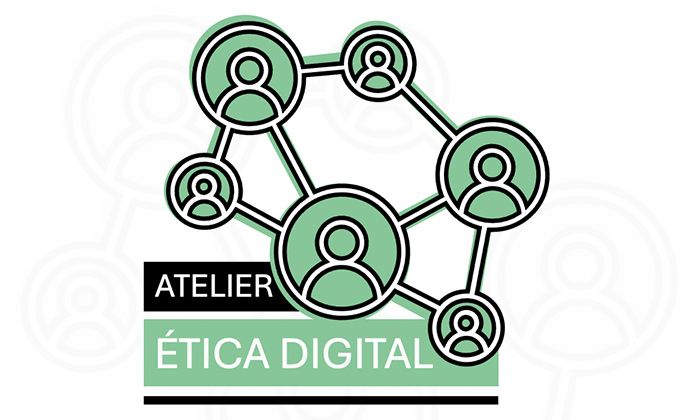Projects
Inclusive Digital Education: Reflective practices in digital ethics
The COVID-19 pandemic accelerated the use of Digital Technologies in Education (DTE), intensifying technological transformations as a form of social production. This shift has introduced new ways of acquiring knowledge, interacting, and acting within schools among teachers, students, and the broader educational community. However, this rapid digital transition has largely lacked ethical reflections to accompany the intensified use and transformation of DTE in schools. As a result, the exclusion and discrimination of individuals and educational communities may be further exacerbated.
Through digital ethics, uninformed practices on ‘automatic action’ platforms and resources can be replaced with reflective practices that reinforce the promotion of human dignity. To foster social justice, schools must commit to inclusive education in the Digitisation of Educational Experiences and Processes.
This exploratory project aims to understand the relevance, applicability, and sustainability of the ethical dimension in the use and interpretation of DTE. It seeks to foster collaborations between Elementary School Teachers (EST) and Higher Education Researchers (HER) to develop guiding principles for defining pedagogical practices that are (socially) just, (technologically) innovative, and (didactically) responsible in digital ethics.
Objectives
The specific objectives of this project are: (i) To identify pedagogical practices of EST at the national level; and (ii) To create a workshop on reflective practices in digital ethics, through a series of integrated actions involving HER and EST.
The research questions are:
RQ1. How is the ethical dimension mobilised by EST to ensure agency, interpretation, safety, and responsibility in the use of DTE with students?
RQ2. What scientific and technological developments promoted by HER in digital ethics contribute to social justice in schools?
RQ3. How can digital ethics be structured as a social, technological, and didactic value to promote the digitisation of educational experiences and processes?
Research Team
- André Freitas (PI), CeiED, Lusófona University
- Alcina de Oliveira Martins, CeiED, Lusófona University
- Dulce Franco, CeiED, Lusófona University
- João Filipe Matos, CeiED, Lusófona University
- Judite Primo, CeiED, Lusófona University
- Leanete Thomas Dotta, CeiED, Lusófona University
- Lucimar Dantas, CeiED, Lusófona University
- Marlene Chaves, CeiED, Lusófona University
- Vanessa Russo, CeiED, Lusófona University
Partners
- Cátedra Educação, Cidadania e Diversidade Cultura
- Citizen Science Doctoral College
- Public Science Forum
Associated ReLeCo's

- Período Date
03.2025 to 03.2026 - Financiamento Funding
CeiED Seed Projects (5.ª edition) - 5 000 EUR - Referência do Projeto Project Reference
PE-CEIED-4/002/2024


